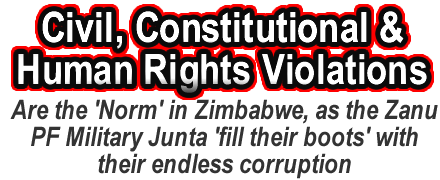 Blessed Mhlanga Still Detained
Blessed Mhlanga Still Detained
As of today, March 21, 2025, Blessed Mhlanga has not been released on bail. The High Court, presided over by Justice Gibson Mandaza, denied his bail appeal, upholding the earlier decision by Harare Magistrate Farai Gwatima. Mhlanga, a senior journalist with Heart & Soul TV (HStv) and Alpha Media Holdings (AMH), has been in custody since his arrest on 24th February 2025, facing charges of inciting violence under Section 164 of the Criminal Law (Codification and Reform) Act. These charges stem from his interviews with war veteran Blessed Geza, who criticized President Emmerson Mnangagwa and called for his resignation.
Implications for Journalism in Zimbabwe
The continued detention of Blessed Mhlanga carries significant implications for journalism in Zimbabwe, reflecting broader challenges to press freedom and freedom of expression: 6 key Issues Raised below
- Chilling Effect on Journalists: Mhlanga’s arrest and the denial of bail send a strong message to journalists that covering dissenting voices or politically sensitive topics can lead to severe repercussions. This could foster self-censorship, as media practitioners may avoid reporting on controversial issues to protect themselves from legal harassment or imprisonment.
- Erosion of Press Freedom: Despite constitutional guarantees under Section 61, which protect freedom of expression and media rights, the use of criminal laws to detain journalists undermines these protections. The case highlights a pattern of increasing state intolerance toward independent journalism, particularly since Mnangagwa’s re-election in 2023, as noted by media watchdogs like Reporters Without Borders.
- Criminalization of Journalism: The framing of Mhlanga’s work—interviewing a public figure—as incitement to violence blurs the line between journalistic duty and criminal activity. Media advocates, including the Media Institute of Southern Africa (MISA) and the International Federation of Journalists (IFJ), have condemned this as an attack on the profession, arguing that journalism is being treated as a terrorist or subversive act rather than a democratic necessity.
- Impact on Public Discourse: By silencing journalists like Mhlanga, the government restricts the flow of information and stifles public debate on critical issues such as governance and economic challenges. This limits citizens’ ability to stay informed and hold leaders accountable, weakening democratic processes.
- International Scrutiny and Reputation: Mhlanga’s case has drawn condemnation from local and global press freedom groups, including the Committee to Protect Journalists (CPJ) and the Centre for Human Rights. This scrutiny could further damage Zimbabwe’s international standing, particularly as it contradicts pledges by Mnangagwa’s administration to improve media freedoms post-Mugabe.
- Legal Precedent and Future Cases: The High Court’s decision to uphold the bail denial reinforces a precedent where journalists can be detained without strong evidence of intent or actual harm. This could embolden authorities to pursue similar actions against other media professionals, creating a more hostile environment for the press.
In summary, Mhlanga’s ongoing detention signals a troubling trend for journalism in Zimbabwe, where the state appears increasingly willing to use legal mechanisms to suppress critical reporting. This not only threatens individual journalists but also the broader role of the media as a pillar of democracy, potentially leading to a more controlled and less transparent information landscape.
